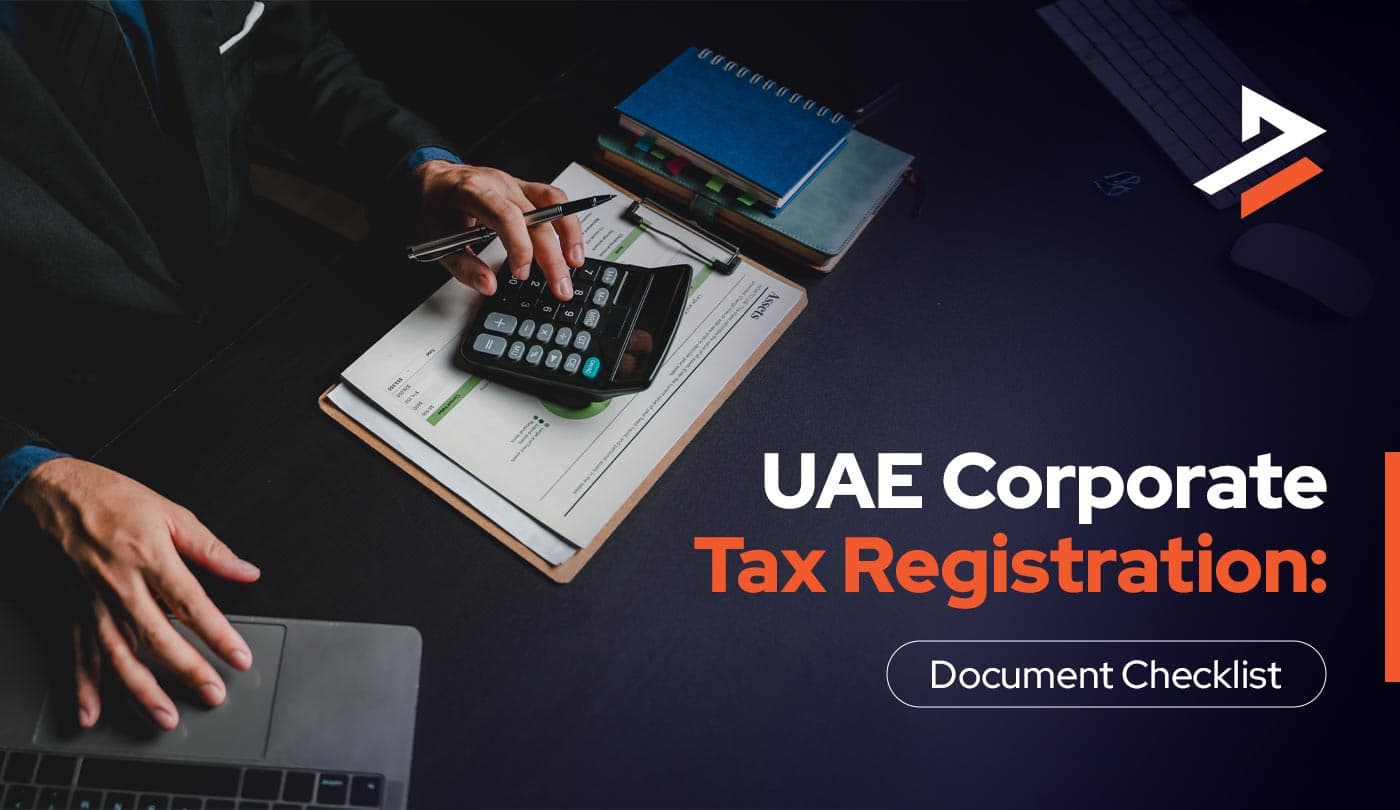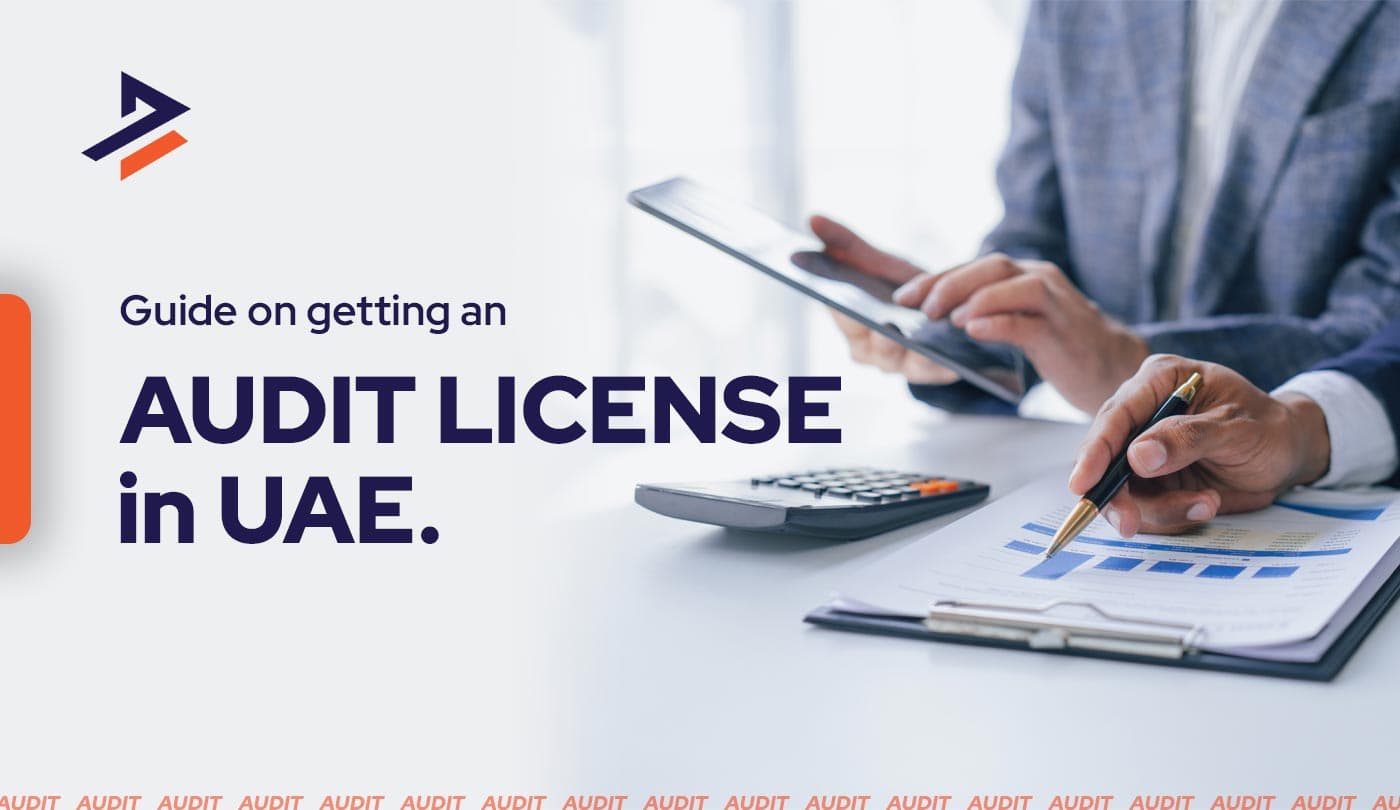One of the biggest changes implemented in the UAE’s taxation system is the Corporate Tax, introduced on June 1, 2023, with attractive tax rates for businesses. The Federal Tax Authority (FTA) mandates all companies operating in the UAE to register for corporate tax to avoid penalties and keep the business compliant. However, the entire registration process relies on one key aspect – having the right documents required for corporate tax registration.
The FTA has specified a list and format of the corporate tax registration documents required. Violating this guideline can lead to penalties, delays, or even rejection of the application. In this post, we will break down the essential documents required for corporate tax registration in the UAE, highlighting their importance and common mistakes to avoid while making your submission.
Overview of Corporate Tax in the UAE
Introduced in June 2023, the federal Corporate Tax applies to the net profits of all businesses across the UAE. While businesses with profits up to AED 375,000 benefit from a 0% tax rate, profits exceeding this threshold are subject to 9% tax rate. On the other hand, government bodies and specific non-profits are exempt from corporate tax.
Who needs to Register for Corporate Tax?
All entities, including companies and individuals, that are engaged in business activities in the UAE are eligible for Corporate tax registration.
- UAE-based businesses: All companies, partnerships, and other juridical entities established in the UAE, including mainland and free zones.
- Foreign businesses: Non-resident companies with a “Permanent Establishment” in the UAE, such as a branch, office, or long-term project.
- Natural persons: This refers to individuals or sole business owners who are carrying out business activities that fall under the scope of corporate tax obligations.
- Exempted Persons: Government bodies or qualifying public benefit organizations are generally exempt from corporate tax, but may still be required to register with the FTA to prove their exemption status.
What Documents are required for Corporate Tax Registration in the UAE?
Listed below are the essential documents required for corporate tax registration in the UAE:-
- Trade License: A trade license, issued by the relevant authority, serves as proof that your business is a legally operating entity in the UAE. Make sure it is up-to-date and not expired before proceeding with the corporate tax registration.
- Memorandum of Association (MOA) or Articles of Association (AOA): The foundational document that outlines the objectives, legal structure, and internal rules of the company. This business blueprint shares crucial information regarding the purpose and framework of the company to the FTA.
- Passport Copies of Owners/Partners/Shareholders: Copies of passports and Emirates ID of all company owners, partners, or shareholders for verification purposes and to confirm the identities of those holding ownership or partnership rights in the company.
- Contact Information: Accurate and up-to-date contact details, including phone number and Email address of the company and a designated contact person (name and contact information).
- Company Details: Official address and PO Box information to ensure clear communication between the FTA and the company.
- Board Resolution (if applicable): Typically required for companies with established boards that approve this document and authorise the registration process for corporate tax.
- Lease Agreement: Proof of the business address, confirming that the company has a registered physical location in the UAE.
- Details of Directors and Managers: Details of people managing or controlling the business, including board members, directors, or managers who are authorized to make decisions on behalf of the company.
- Tax Registration Number (TRN): The VAT TRN certificate of businesses already registered for VAT in the UAE, for the FTA to link your VAT and corporate tax records under one profile.
- Latest Audited Financial Statements: Financial statements to support the registration application and help the FTA understand the size and profitability of the company. Although not mandatory for all businesses, larger businesses need to submit them.
- Bank Account Details: Official bank account details, including the IBAN and account number of the company, to help link financial transactions for tax purposes.
- Power of Attorney (if applicable): A notarized Power of Attorney authorizing someone else (like a tax consultant or PRO) to act for the business in front of the FTA.
- Approvals from Relevant Authorities: Approvals or licenses from the respective governing authorities for businesses in regulated sectors such as healthcare, education, or financial services.
- Certificate of Incorporation: Applicable to certain types of businesses, such as companies incorporated in free zones or under specific laws, serving as proof that the company is legally established and recognized by the authorities.
Please note that there may be more or less requirements depending on your business case. We recommend getting in touch with our experts for more information.
UAE Corporate Tax Registration Process: How to register
Here’s a simple step-by-step guide to corporate tax registration and CT filing required documents :
Step 1: Create an FTA Account
Visit the official website of the Federal Tax Authority (FTA) and create an account by providing your email ID, password, and security verification details. Receive a confirmation email and activate your account.
Step 2: Log in to the FTA Portal
Once your account is activated, log in to the portal with your credentials and go to the Corporate Tax section.
Step 3: Start a New Corporate Tax Registration Application
Select “Register for Corporate Tax” and get an application form. Carefully read the given instructions on eligibility and compliance.
Step 4: Fill in Basic Business Details
Enter mandatory details such as the company name (as mentioned in the license), trade license number, license expiry date, the company setup (mainland, free zone, offshore), legal structure, business activity, etc.
Step 5: Provide Owner and Management Information
Upload copies of passports and Emirates ID of all shareholders and business partners, and details of directors, managers, or authorized signatories.
Step 6: Enter Contact and Address Information
Provide official contact details of the company, such as email, phone number, etc. Enter the registered office address.
Step 7: Upload Required Documents
Upload all supporting corporate tax registration documents required, such as the trade license, MOA/AOA, passport & Emirates ID copies, bank account details, and financial statements (if available).
Step 8: Review and Submit the Application
Double-check all the details and uploaded documents before final submission.
Step 9: FTA Review and Approval
Upon submission, the FTA will review the application and request additional information, if required. Once the application is successfully approved, they will issue a Corporate Tax Registration Number (TRN).
Step 10: Maintain Compliance
After receiving the TRN, make sure to keep it safe for future tax purposes. Maintain compliance with the FTA regulations, such as filing annual tax returns, maintaining accurate records, etc., to avoid legal consequences.
Importance of accurate Corporate Tax Registration Documents
Reliable and verifiable documentation supports your corporate tax registration request with the tax authorities. Proper documentation is valuable in the following ways:
- Ensures Compliance with UAE Tax Laws – Maintaining specific records for at least seven years, as required by the FTA, ensures compliance with Article 78 of the Corporate Tax Law and reduces the risk of penalties or audits.
- Minimises Risk of Penalties and Fines – Timely submission of well-prepared documentation can avoid the risk of misreporting, delayed filings, or rejected returns, keeping the business penalty-free.
- Supports Transparency and Audit Readiness – With proper records, businesses can easily defend FTA audits, resolve queries quickly, and avoid extended investigations.
- Helps Maximise Deductions and Tax Benefits – Documentation of expenses, such as salaries, depreciation, or operational costs, accurately can help businesses claim all eligible deductions and reduce their taxable income and tax payable.
- Builds Confidence with Stakeholders – Well-maintained records reflect financial discipline and build trust with stakeholders and potential partners.
Thus, learning about the documents required for corporate tax registration is not just a requisite but also the best defense against FTA-imposed penalties and audits.
Common mistakes to avoid with Corporate Tax Registration Documents
Here are some of the most common mistakes businesses must avoid to prevent delays, rejections, or penalties during corporate tax registration:
- Submitting incomplete financial statements: Notes to accounts or comparative figures are some key components in financial records. Make sure to include all required sections while preparing audited statements.
- Using the wrong accounting basis: To avoid compliance issues, stick to the method aligned with your tax obligations and business size. Make sure to follow the appropriate accounting method, be it cash accounting or accrual accounting.
- Missing supporting documents: Failing to attach essential documents or records may create discrepancies and raise audit flags. Therefore, always make sure to maintain backup copies, such as contracts, invoices, payroll records, or depreciation schedules for major records.
- Late document submission: Delays in preparing or collecting documents required for corporate tax registration can lead to missed deadlines and financial troubles. To avoid such a situation, make sure to complete your obligations within the FTA-specified timeline.
- Disorganised or unlabelled files: Unstructured or poorly named documents can make it difficult to verify information. Hence, name your files clearly and set them by type to ensure a smooth verification procedure.
- Overlooking reconciliation errors: The financial statements of the company must reconcile with supporting records like bank statements and ledgers. Any mismatches during review can cause serious issues.
- Not understanding how to file taxes correctly: Tax filing is not just submitting financial statements. It includes reconciling ledgers, uploading clear documentation, meeting FTA format requirements, and filing within the stipulated timeline to avoid legal troubles.
Conclusion
Thus, registering for corporate tax is a legal requirement for most businesses operating in the UAE. However, submitting the right documents required for corporate tax registration is essential to streamline the registration process and ensure accuracy, consistency, audit preparedness, and compliance with the tax regulations. Hence, understanding these requirements can help you stay organised and ensure a smooth and stress-free experience.
Get Professional assistance with your CT filing required documents
An efficient corporate tax registration starts with having the correct documents to make the process smoother and avoid unnecessary delays or compliance issues. At Dubiz, you get a full range of taxation services, including VAT, bookkeeping, audits, and compliance. From helping you arrange the right documents required for corporate tax registration to completing the registration, our team will handle everything.
Reach out to Dubiz tax consultants for a free consultation.
📞 Call: +971 563695485
💬 WhatsApp: +971563695485
📧 Email: info@dubiz.co
Frequently Asked Questions(FAQs)
1. What is a corporate tax in the UAE?
Corporate tax is a tax levied on the net profits of a company. Businesses with profits up to AED 375,000 benefit from a 0% tax rate, while those with profits exceeding that amount are subject to a standard 9% rate.
2. What are the necessary documents required for corporate tax registration in UAE?
The main corporate tax registration documents required in the UAE include:
1. Valid trade license
2. Memorandum of Association (MOA) or Articles of Association (AOA)
3. Passport copies of owners/partners/shareholders
4. Contact details
5. Company details
6. Board resolution
3. Is a trade license necessary for corporate tax registration in the UAE?
Yes, a valid trade license is necessary for the corporate tax registration process, as it serves as proof that your company is authorized to operate in the UAE.
4. Who are exempted from corporate tax registration in the UAE?
Certain entities, like government bodies and specific non-profits, are exempt from corporate tax registration in the UAE. However, they still may be required to register with the Federal Tax Authority (FTA).
5. Why are MOA and AOA mandatory for corporate tax registration?
The MOA (Memorandum of Association) and AOA (Articles of Association) are fundamental business documents that outline the objectives, legal structure, and internal rules of the company and share crucial information with the FTA about the purpose and framework of the company.




